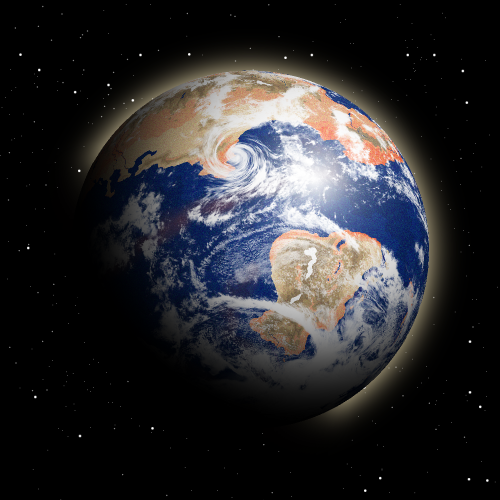#ea our second chance
EA, OUR SECOND CHANCE
0. Introduction
« For each of you We have made laws, and a structure; and had God willed, He would have made you all one nation, but He tests you with what He has given you; so strive to do good. » – Quran 5:48
« … I think the end result is that the closer you come to true freedom of association, the closer you get to a world where everyone is a member of more or less the community they deserve. That would be a pretty unprecedented bit of progress. » – Scott Alexander, Archipelago and Atomic Communitarianism, 2014
Three hundred years have passed since we’ve last heard of Earth.
We don’t know where to look or listen in the night sky, and all our radiotelescopes haven’t caught so much as a whisper from any direction. As far as we can tell, every single human that lives, lives here on Ea, where the starship brought us so many generations ago. And when one considers the state of our former planet at the time of our departure, this statement is likely to be true in the most literal sense.
We don’t even know how far it traveled, or in what direction. How many centuries did it spend cruising through the void with its irreplaceable cargo, before its thousand sensors told it of the presence of an Earth-like planet in this corner of the galaxy? The navigation centers, consumed by the rigors of space, were of little use; and once the pods descended on the parched surface, quickly sacrificed by the travellers to survive those first terrible years, the starship was a distant concern. For centuries it hovered silently over Ea, burning red at dawn and sunset, shining with reflected light in the night-time, watching over us as it had during our long sleep.
But this is no cause for sadness; as much as our ancestors loved their green world, we have found reason to love our own red one.
We know much about Earth, of course – we saved the records, the documents, the encyclopedias, the art catalogues. We know about the Sun, the Moon, and Mars. We know about the Sahara, the Amazon, and the Great Barrier Reef. We know about elephants, whale sharks, and hummingbirds. We know about Jesus, Buddha, and Muhammad. We know about Napoleon, Hitler, and Genghis Khan. But few of us know Earth, the world that was. Very few, those ten thousand who first stumbled out on the yellow sands of Ea, still dazed from cryopreservation – or the even fewer who remain, some living quietly in unknown corners of the planet, some guiding our societies with their peerless wisdom.
We had hoped that none of the tragedies of Earth would repeat. Yet before the pod shields had cooled we began to argue about the best way to live, and words quickly gave way to weapons. The most honorable solution we found was to part ways with each other: there was a whole planet to fill, beautiful and untouched, and we were few, then. People were allowed to pick what sort of society they would rather join, and eventually great nations formed. Some built themselves a paradise of earthly pleasures, others find fulfillment in industry and creation; some placed their trust in the Creator of all worlds, others sharpen their minds to carve truth out of confusion; some find comfort in the protection of a wise leader or in the provisions of bountiful nature, others take pride in tracing their own path in the world.
Most of us, sitting here, remember well the horrors of the Planetary War. But a greater number of us, I hope, remember the promise we’ve all made afterward. Seven powers shall share this world as equals, each managing its domain after its own conscience, each agreeing to let the others do the same.
We may not know Earth anymore, but we have begun knowing Ea. Much of it we have lost, replaced with what we remember of Earth. This was a cold and arid place, we were told; so we blasted apart the polar caps, drilled boreholes through the crust, and scattered to the wind all sorts of seeds, spores, and eggs, to make it more like the world that was. We were anxious to overcome the new challenges, from the ruthless global winter to the marine eruptions that troubled our fleets. We were adrift and alone, and we clung to whatever reminded us most of home. Only recently we’ve started truly to appreciate the world that is. The world of red forests and blue flesh, the world of floating jungles and living stones that once baffled us so much. This too was a mistake of our forefathers; this too is a pledge to do better.
Here we are on Ea, second planet from Utu, our second chance, perhaps not yet definitively wasted. We have all made a leap of faith through the unknown, searching for the deepest unity of our species, for a responsible place in the universe, for a deeper understanding of the cosmos we share, to pursue growth and excellence, to experience happiness without compromise, to exercise our capacity to live and create, to honor the memory of our ancestors; any of these things, and all together, depending on what is in our heart and our mind.
Let us toast these three centuries of life, then, and let the next ones be better still.
– First Speaker Irene Järvinen, address to the Planetary Assembly, Landing Point; opening toast for the Third Centenary (300 AL)
(tbc)
The project’s gallery on DeviantArt
The original thread on the SpecEvo Forum
The secondary thread of the Alternate History forum
Post link

